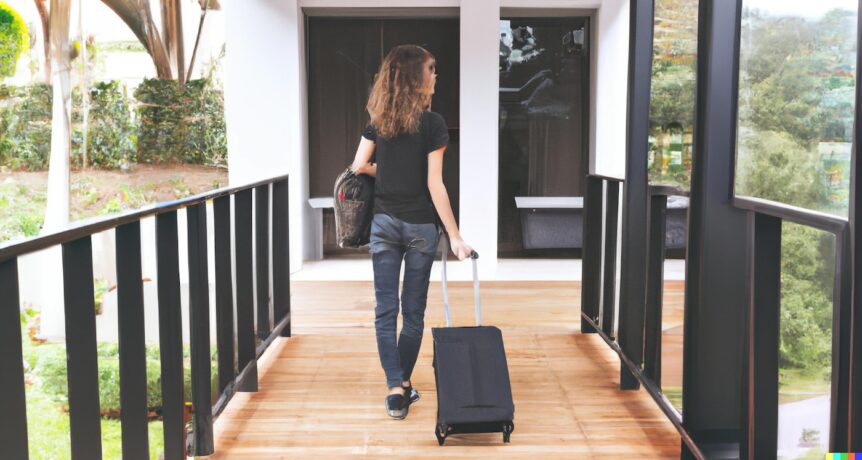The concept of house-sitting can be both thrilling and daunting for solo sitters. While the opportunity to explore new locations and enjoy different surroundings is a definite plus, safety concerns are often at the forefront. Whether you’re a seasoned sitter or new to the game, it’s crucial to prioritize your safety and peace of mind. Here’s a guide to help you stay secure while enjoying the perks of solo house-sitting.
Research Is Key
Before accepting a house-sitting assignment, research the area thoroughly. Look up crime rates, read local news, and understand the neighborhood’s layout. Get to know the area’s safety reputation through forums or community groups where previous sitters may share their experiences.
Clear Communication
Establish a clear line of communication with the homeowners. Before they leave, ask for a comprehensive guide to their home, including any quirks or essential security information like alarm systems. Also, ensure you have emergency contact details for the homeowners and local services.
Set Boundaries
Have an upfront conversation with homeowners about visitors. It’s generally advisable to avoid having guests over when you’re house-sitting, but if it’s necessary, make sure the homeowners are comfortable with it and aware of who might be coming by.
Trust Your Instincts
Never feel obligated to stay in a place where you feel unsafe or uncomfortable. If upon arrival or anytime during your stay something feels ‘off’, trust your intuition and communicate your concerns with the homeowner or your house-sitting service.
Personal Safety Measures
Keep personal safety devices such as a whistle or a personal alarm close by. Make sure your phone is always charged, and invest in a power bank if you’re going to be out for extended periods. Avoid sharing your location on social media or public platforms.
Emergency Plans
Familiarize yourself with all exits in the home and establish an escape route in case of emergencies. Know where you can go for safety, such as a neighbor’s house or a public area.
Secure Personal Items
Even in a trusted environment, secure your valuables and personal information. Use a lockable suitcase or a safe if one is available, and never leave sensitive information like passports or credit cards unattended.
Get To Know The Neighbors
If possible, meet the neighbors early in your stay. Knowing someone nearby can be both comforting and practical; they can be a point of contact in the case of an emergency and offer local advice.
Stay Connected
Keep friends or family updated about your whereabouts. Share your house-sitting location with someone you trust, and consider regular check-ins to confirm your wellbeing.
Your Home Environment
Ensure the house is always locked when you’re inside and never leave spare keys outside. Keep curtains closed at night and lights on when necessary to deter unwanted attention.
Be Prepared, Not Paranoid
Preparation is vital, but there’s no need to be paranoid. Most house-sitting experiences go smoothly, and taking the right precautions will help you feel more relaxed and capable of dealing with any situation should it arise.
Solo house-sitting doesn’t have to be a solitary or scary experience. With proper planning, clear communication, and safety strategies, you can comfortably and confidently enjoy your house-sitting adventures. Remember, being cautious and prepared empowers you to focus on the enjoyment and opportunities that come with solo house-sitting. Stay safe, stay smart, and happy sitting!

